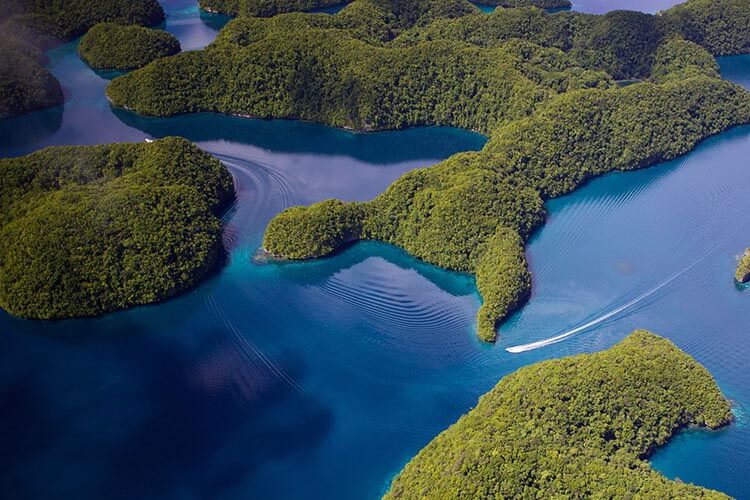
Scientists have been mapping coral reefs on a global scale for ten years to generate models of reef ecosystem health
Scientists have developed a new way to model and map the health of coral reef ecosystems using data collected from more than 1,000 reefs in 16 countries over a ten-year period, according to a new report from the Khaled bin Sultan Living Oceans Foundation. The new models are a first step in being able to produce maps of global coral reef resilience.
Recently presented at the International Coral Reef Symposium (ICRS) by the paper’s lead author, Anna Bakker, the models are designed to determine which natural and anthropogenic factors are most likely to lead to persistently vibrant coral and fish communities, helping scientists identify the reefs most likely to survive in a changing world.
Data to create the models were taken from the Khaled bin Sultan Living Oceans Foundation’s (KSLOF’s) Global Reef Expedition – a ten-year research mission involving more than 200 scientists from around the world, working together with local experts to study the health and resilience of coral reefs across the globe.
‘This research would not have been possible without the massive amount of field data collected on the Global Reef Expedition,’ said Bakker, a PhD candidate at the University of Miami’s Rosenstiel School of Marine and Atmospheric Science (RSMAS). ‘The sheer amount of benthic and fish observations collected in the field from around the world enabled us to take a holistic look at indicators of coral reef health – such as coral cover or fish biomass – and figure out what drives one coral reef to be healthier than another.’
Related articles

The survey produced more than 65,000 square kilometres of high-resolution marine habitat maps, coupled with a treasure-trove of standardized and geo-referenced data on coral cover, algal blooms and fish biomass. Bakker pooled all of the data collected in the South Pacific – from Palau, the Solomon Islands, New Caledonia, Fiji, Tonga, the Cook Islands, and French Polynesia – to create the models, correlating biomass data with anthropogenic factors such as wave energy, water temperatures, human population density, and protected areas, to determine which factors were driving the observed differences in the marine environment.
The study showed that only a relatively small number of factors were behind variations in the health of the coral reef communities. Fish biomass, for example, was primarily affected by biophysical drivers such as water temperature, whereas algal cover was affected mainly by anthropogenic factors, such as soil and chemical run-off. The coral itself was affected by a more complicated combination of both natural and anthropogenic factors, such as human population, local development and water temperature.
Understanding the most important drivers affecting the reef ecosystems will help conservationists prioritise which factors need to be addressed in a particular location, in order to protect coral reefs and identify which reefs are more likely to thrive in a rapidly changing world. While the models so far presented at ICRS cover the reefs of the South Pacific, Bakker intends to use the same modelling approach to the Indian and Pacific Oceans in the future.

‘Anna’s work is an important step in the scaling of local measures of reef resilience to a global appraisal,’ said Sam Purkis, KSLOF’s Chief Scientist and Professor of the Department of Marine Geosciences at the RSMAS.
‘When we embarked on the Global Reef Expedition in 2006, we had no idea our data could be used in this way,’ said Alexandra Dempsey, Director of Science Management at KSLOF and co-author of the study. ‘The technology to develop and run these kinds of models did not exist yet. But we knew we were collecting valuable data that needed to stand the test of time.’
‘The Global Reef Expedition mission gave us the chance to study some of the most remote and pristine coral reefs in the world. Now, it is providing the conservation community with the information we need to identify the reefs that can be saved before it is too late to save them. Let’s not waste this opportunity.’
For more information, visit KSLOF’s website at livingoceansfoundation.org/
- Student diver dies during training dive in Golfo Nuevo, Argentina - 20 February 2026
- New shark-repellent hook could cut longline bycatch by more than 60 per cent - 17 February 2026
- Perth dive operator fined after leaving divers behind - 16 February 2026


